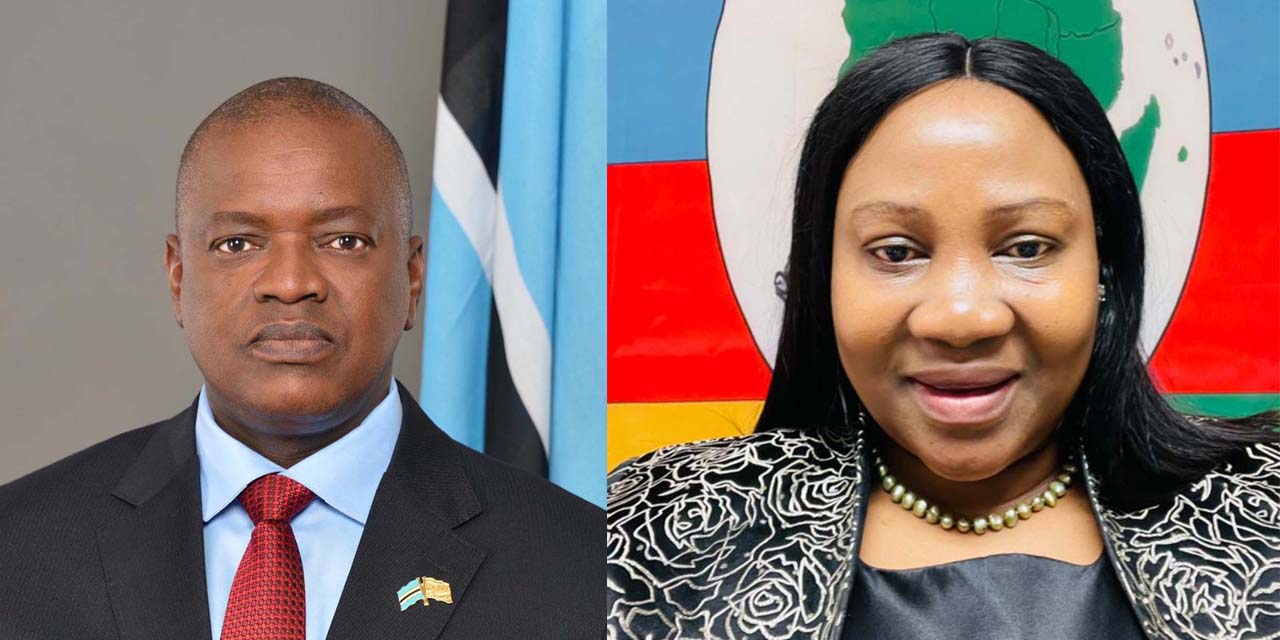Moses Magadza
“The African Continental Free Trade Area (AfCFTA) is one of the key drivers that can position Africa as an economic powerhouse,” declared the President of Botswana Mokgweetsi Masisi, while officially opening the 49th Plenary Assembly Session virtually yesterday (Friday 25 June, 2021).
“However, it is important to underscore that, the successful implementation of the SADC integration agenda is a prerequisite for the true realisation of the AfCFTA,” he continued.
Masisi stressed that domestication of AfCFTA at national level was “central to (its) effective implementation”.
AfCTA was agreed upon in 2018 and came into force in January this year. It seeks, among others, to catalyze inclusive and sustainable development through boosting intra-Africa trade while giving Africa a united and thus bigger voice in global trade negotiations.
The SADC PF brings together 15 national parliaments, 13 of which are represented at the ongoing Plenary Assembly Session. The Plenary was scheduled to run for three days under the theme :‘Leveraging the AFCTA for post-COVID-19 economic recovery in Southern Africa: The role of the SADC Parliamentary Forum and National Parliaments’.
Masisi expressed hope that negotiations within the framework of AfCTFA would “move beyond trade in goods and services, and take into consideration, other issues such as intellectual property rights, investment and competition policy”, which he said directly impact on trade flows.
“They need to be further ironed out to ensure that the Free Trade Area operates without hindrances,” he cautioned.
He hailed the coming into force of the AfCFTA as “the most significant milestone in Africa’s integration agenda” and sounded upbeat that the resultant market of close to 1.27 billion people and a combined Gross Domestic Product of over US$2.5 trillion would deepen regional economic cooperation in Africa.
The Botswana head of state saluted the region’s parliamentarians for helping member states respond and mitigate the impact of the ongoing global COVID-19 pandemic but said their work remained cut.
“The role of Parliamentarians has been key in ensuring effective responses to COVID-19. You have been critical in our engagement with communities and your sound advice to governments provided the best possible measures to put in place in the fight against COVID – 19,” he said.
He said as the SADC Region angles for the benefits of the AfCFTA, the role of MPs would “even be more critical during the rebuilding of national economies”.
In that regard, Masisi enjoined the region’s MPs “to move beyond political boundaries and put our nations, our region and our people first, for a quick economic recovery to take effect”.
While acknowledging the fact that COVID-19 had wreaked havoc regionally and globally, the President enjoined the MPs to remain united and not allow “temporary circumstances to define the future of our region”.
He added: “Our common set of values that always bind us together – unity – peace – development, remain the foundation of our success and the pillar of our strength, even in the darkest hour of our time.”
Speaking at the same occasion, SADC PF Secretary General Boemo Sekgoma, said the hosting of the Plenary in spite of the ongoing COVID-19 pandemic, “demonstrates the resilience of the Forum as supported by all Member Parliaments, and embodies its determination and commitment to promoting inter-parliamentary cooperation and diplomacy”.
Turning to key recent achievements of the Forum, Sekgoma said work was ongoing in developing SADC Model laws that member states can adapt or adopt as they see fit.
“As we meet, two Model Laws are nearing finalisation. They are the SADC Model Law on Gender Based Violence, and the SADC Model Law on Public Financial Management,” she said.
She expressed optimism that the regional soft laws and others developed before them, would “contribute to the legal ecosystem of the SADC Region, and reinforce good governance, accountability and transparency, which are the hallmarks of parliamentary activity”.
She said it was hoped that with COVID-19 likely to have a continuing impact on the lives of SADC consumers, the SADC Model Law on Public Financial Management would ensure that the rights of consumers are protected within the digital economy, “in which they will perform multiple transactions on-line”.
She added: “Forum strives to uphold socio-economic inclusion of all segments of the SADC population, without discrimination, and assist Parliaments enact laws that are inclusive, purposeful, and responsive to the needs of the SADC citizenry.”
Namibia parliamentarians are participating in the plenary.




